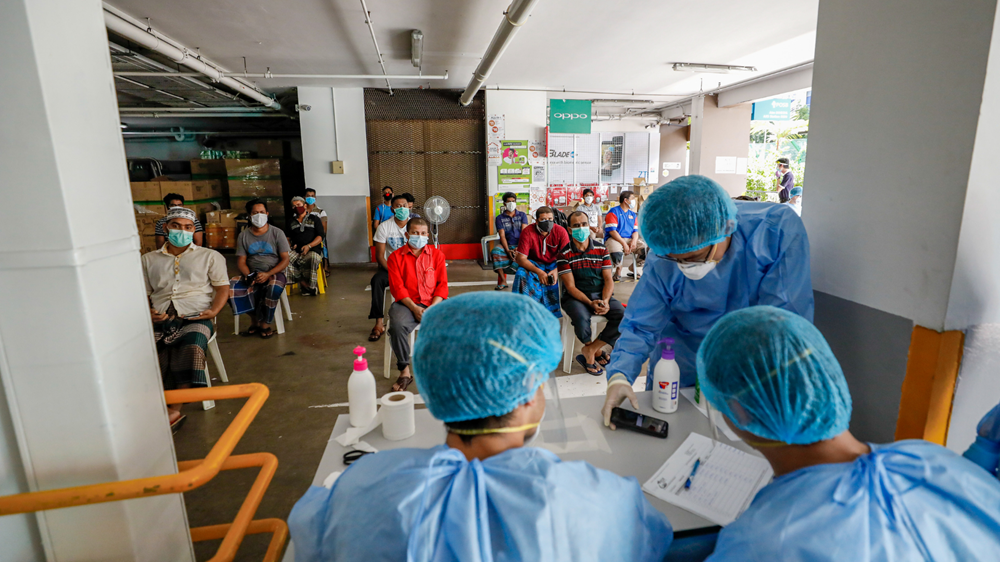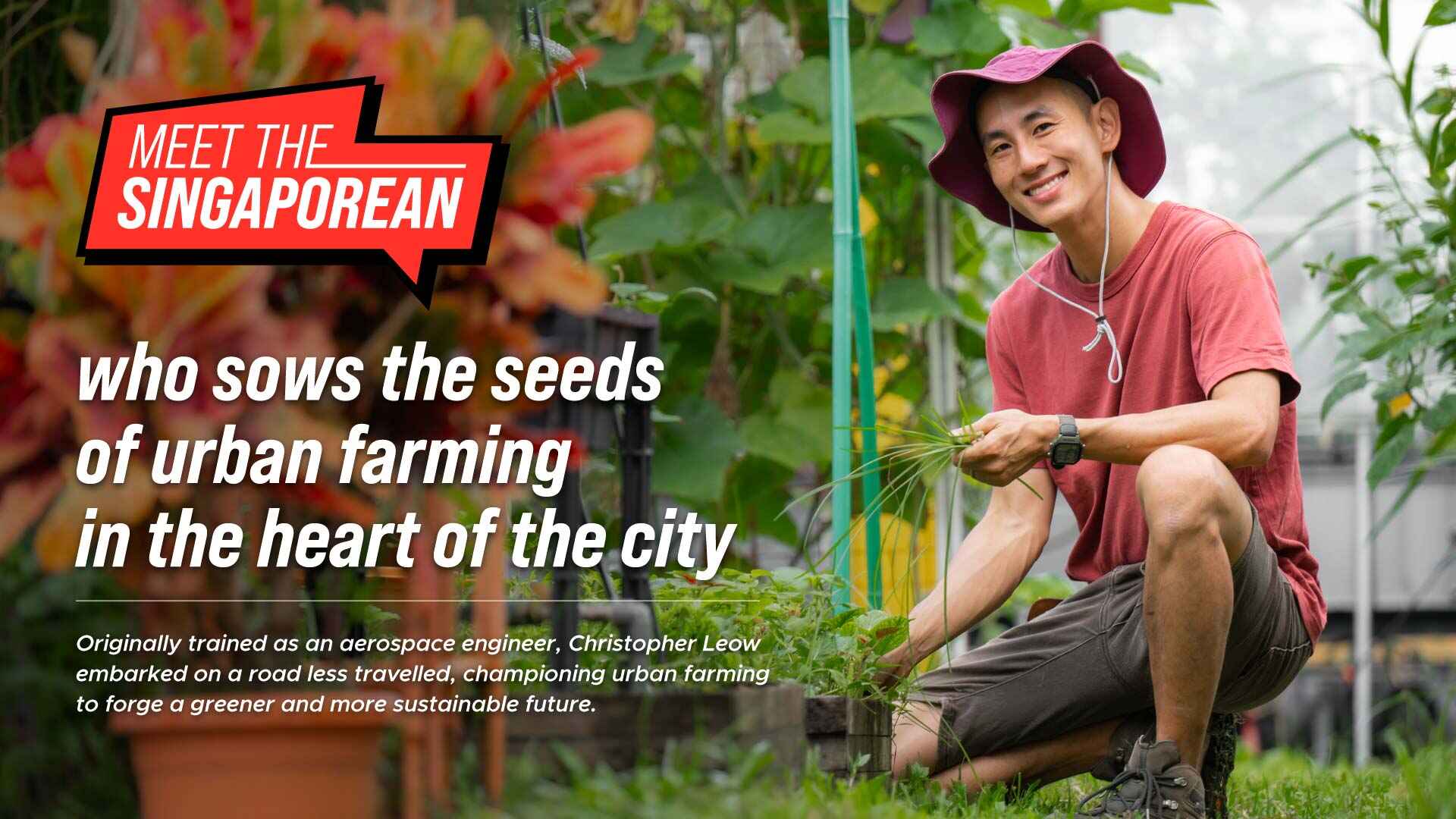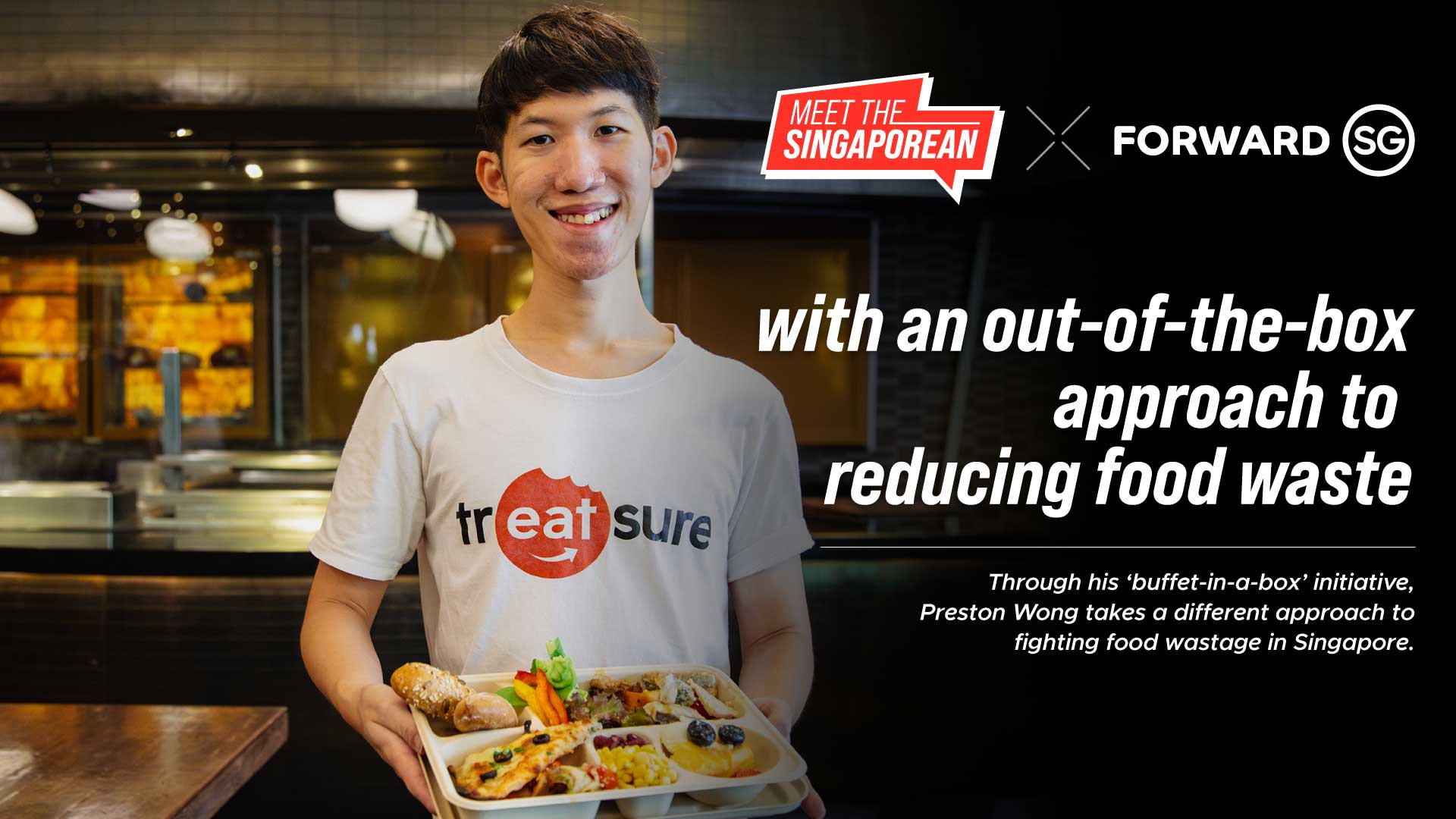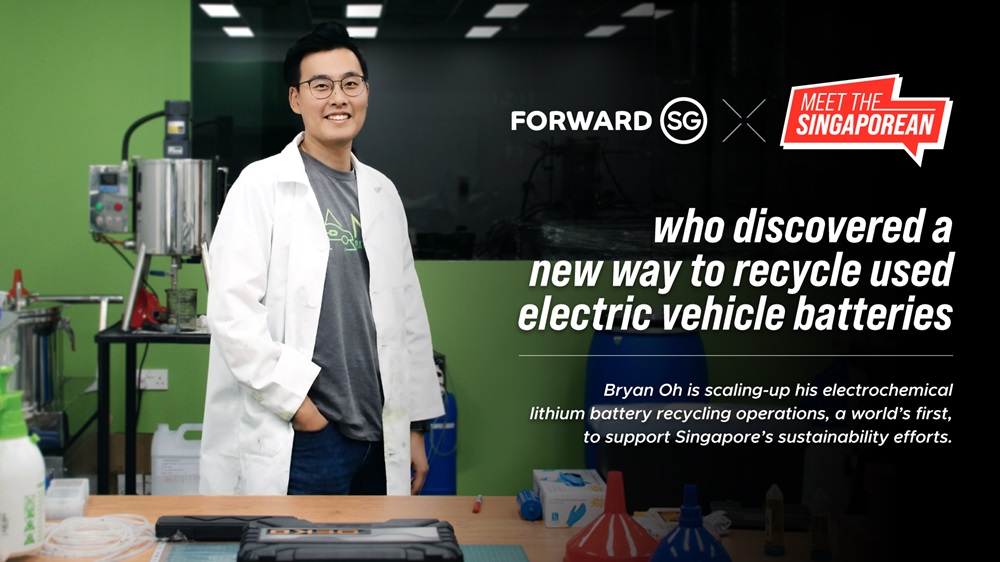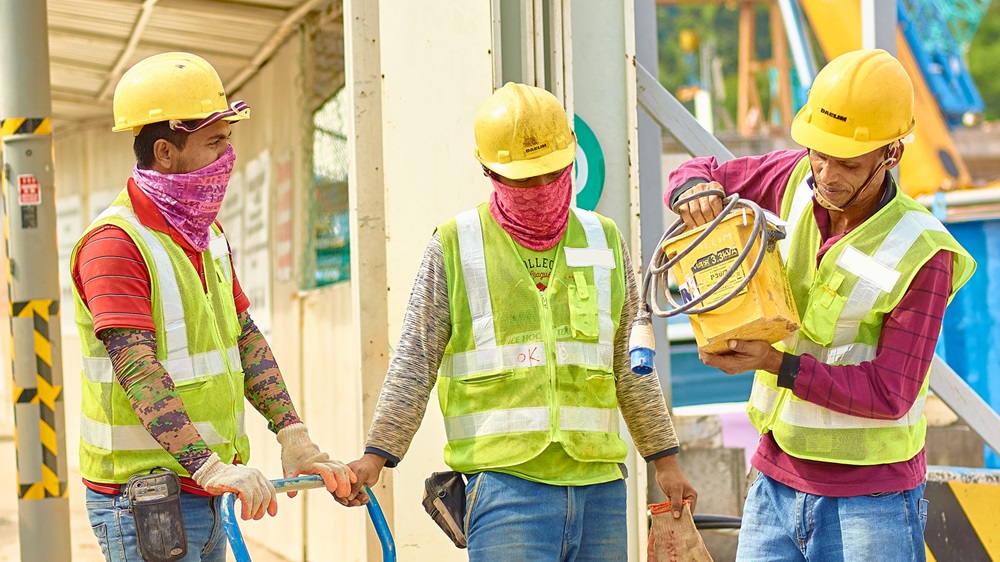

1.6 million kilograms of food redistributed and prevented from going to waste– that’s what a team of 10 persons from the Food Bank Singapore achieved last year. That is equivalent to the weight of about 104 single-deck SBS Transit buses.
The Food Bank Singapore was founded by siblings Nichol Ng, 43, and Nicholas Ng, 42 who run a food distribution business. Through their work, they observed that Singapore had been generating a tremendous amount of food waste.
“Most of us who were born post-independence never had to struggle with putting food on the table as Singapore is a food haven – make that an affordable food haven. Where else can you get a $3.00 hot meal in a first world country? Because of this, some of us do not think twice about dumping food,” Nichol says.
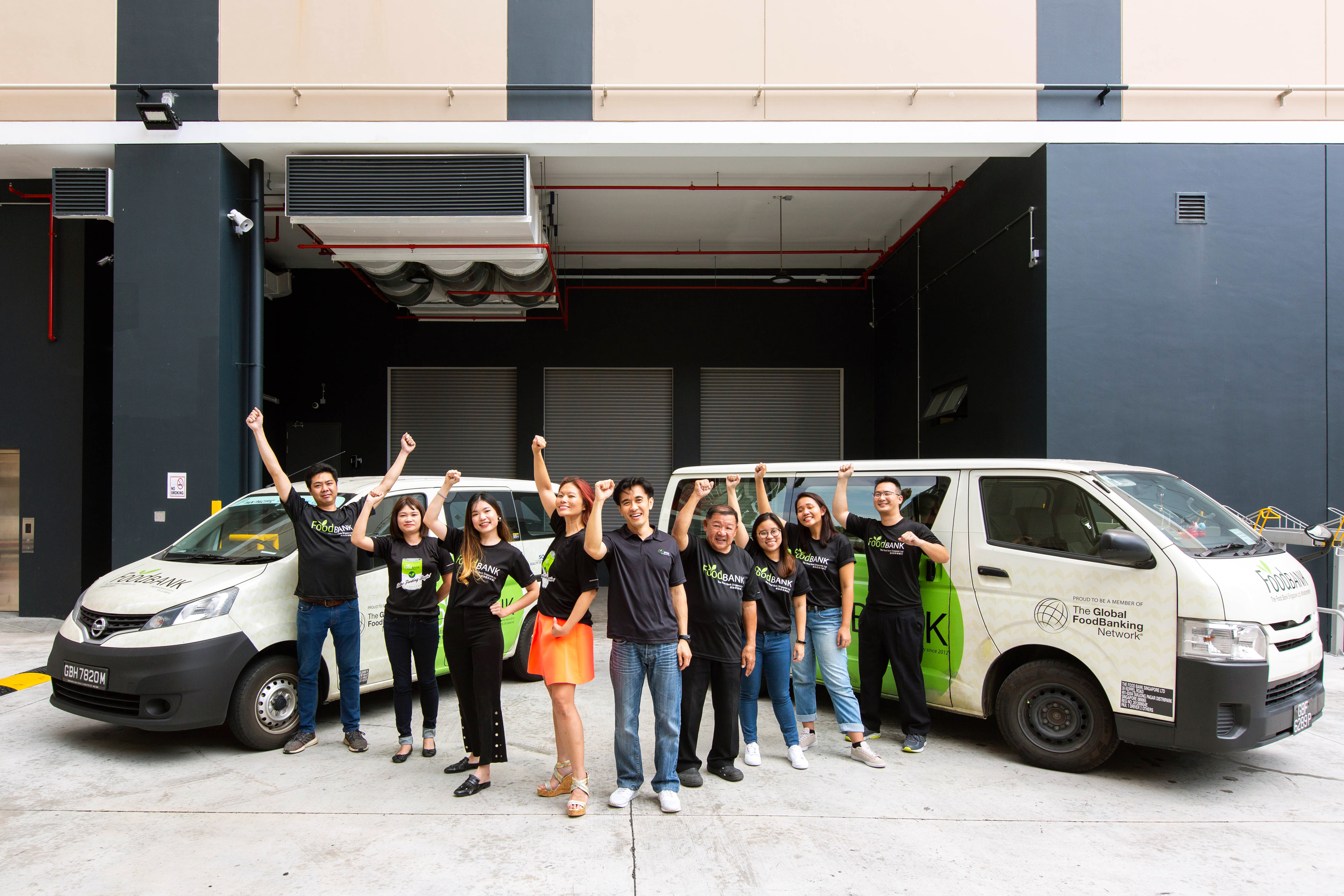
Nichol and Nicholas Ng (middle), co-founders of Food Bank Singapore and their team
The Ngs realised that together with their peers in the F&B industry, they were well-positioned to play a much bigger role in fighting food waste and food insecurity in Singapore.
Using innovation to overcome constraints
But tackling food waste and food insecurity was not at all easy. In fact, things became even tougher with the COVID-19 pandemic.
For one, there was a severe drop in volunteers. “We rely mostly on volunteers to get the work done. With COVID-19, we had to make do with fewer volunteers in a confined space to sort out the food,” Nichol explains.
In addition, it was extremely challenging to distribute food to households during the Circuit Breaker period, with the limited manpower and COVID-19 regulations in place.
Even though the organisation was given the greenlight to operate during that period (“We had the opportunity to go door-to-door”), the Food Bank team had to devise ways to streamline manpower, working closely with the Ministry of Social and Family Development to cross-check the names of beneficiaries so that the assistance rendered would not be duplicated.
Another innovation that’s in the works is the Virtual Food Banking App, “It is something that will change the way food aid is being distributed once we get it fully off the ground. The idea is to go digital as much as possible with our ops,” Nichol says.
Despite facing many challenges during the period, the team has continuously worked on fresh projects to break new grounds to improve the efficacy of food distribution.
Fixing the buy and throwaway culture
Previously a mechanical engineer, Danny Lim, 53, joined Repair Kopitiam as a Community Innovator after hearing about the corporate social responsibility project by Sustainable Living Lab, a local movement looking at sustainability issues.
“People come here to attend coaching sessions, to learn how to fix their beloved barang at the community repair meetup sessions, and give their barang a new lease of life,” says Danny.
Besides consumerism, another factor that deters people from learning how to fix their own appliances is the fear of getting an electric shock. Many of us may relate to our parents’ reminders, like “Don’t touch the sockets with your wet hands, otherwise you will get an electric shock,” says Danny, who adds that repairing appliances is safe, as long as you take the necessary precautions.
Appreciating the value in objects
Despite having a mechanical engineering background, Danny explains that it was not at all easy to apply his knowledge at the community repair meetup sessions. He often encounters different repair problems and unique challenges with people coming forward to repair their items.
“Interpersonal skills are more important than repair knowledge here”, Danny chuckles.
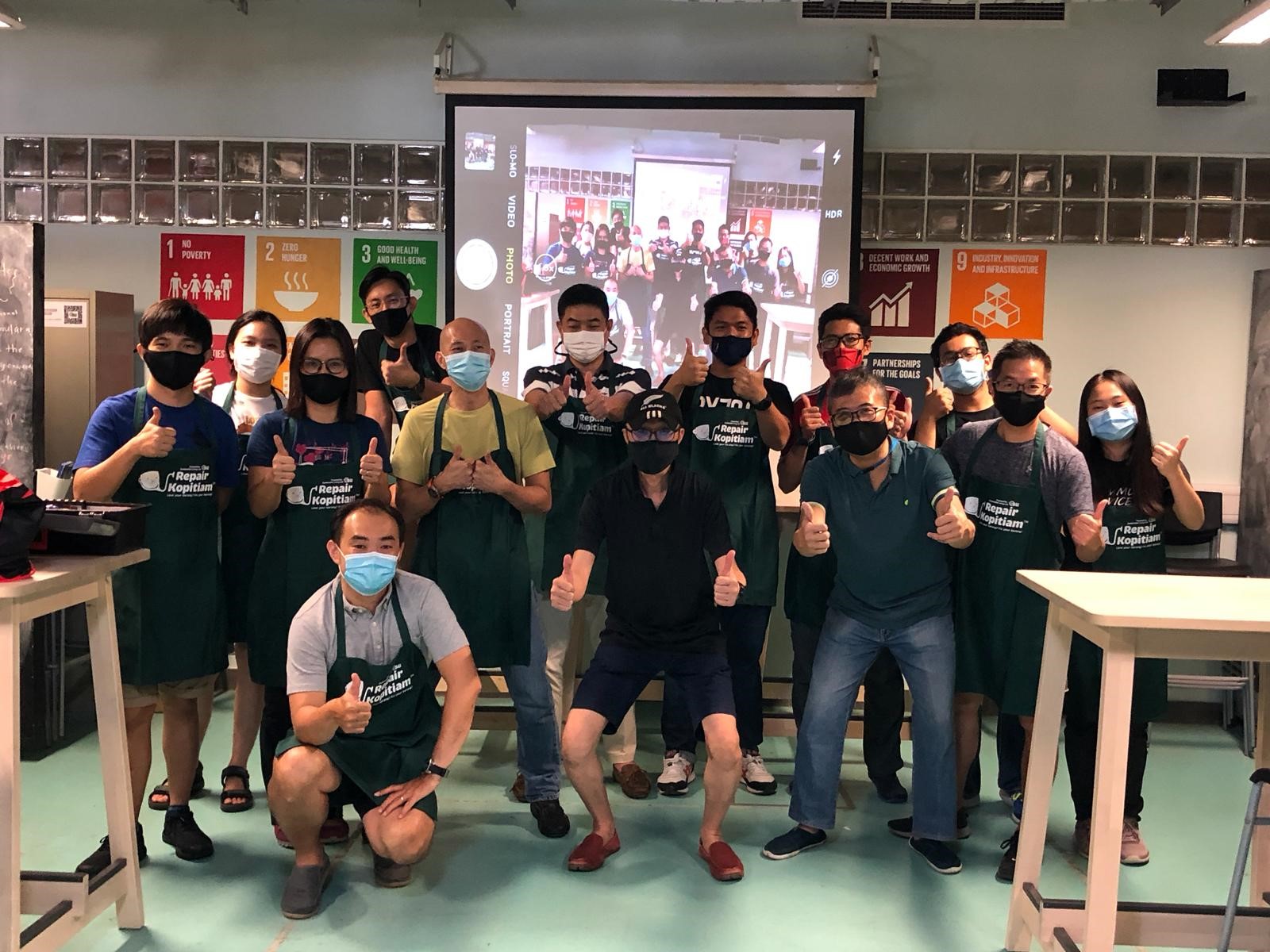
Danny Lim (2nd row, third from the right) with his team of volunteers at Repair Kopitiam
As shared by Danny, the objective of running these community repair sessions is to help change people’s mindsets that things can be repaired and inspire them to learn how to repair. People from all walks of life come to the sessions to get things repaired for various reasons, including saving money, or to save items of sentimental value.
Some of these visitors, who initially turned up to get help to fix their items, later became repair coaches themselves, after seeing the value of the sessions.
Repairing items can also help seniors with mild cognitive impairment. Seniors with this impairment often find it difficult to operate new appliances, as their memory to operate such items remain in the past. “Mild cognitive impairment is reversible if the person can find a hobby that requires troubleshooting and logical diagnosis,” Danny explains. Repairing these items can help them to struggle less in operating their older appliances.
Witnessing these positive outcomes, Danny encourages more people to join the community repair meetup sessions.
“Come to Repair Kopitiam and get a slot with us, don’t just throw it (broken appliances) away. Start sustainability small – it can be from zero to hero.”
Singapore Green Plan 2030
The Singapore Green Plan 2030 was launched recently as a whole-of-nation movement to advance Singapore’s agenda on sustainable development.
Nichol says that she sees the plan as a means for NGOs and organisations to push ahead boldly with sustainability ideas. “It is an extension of what we are already doing as a country for years. The plan has given our country something even more concrete to work towards beyond just growing the GDP numbers.”
Danny shares similar sentiments, “To me, it’s about actionable, achievable targets which can help movements like Repair Kopitiam collaborate with other like-minded individuals and organisations to do more by sharing resources.”
| Share your ideas for the SG Green Plan 2030 at: greenplan.gov.sg/take-action/share-your-ideas/ What you can do
|
We use cookies to tailor your browsing experience. By continuing to use Gov.sg, you accept our use of cookies. To decline cookies at any time, you may adjust your browser settings. Find out more about your cookie preferences here .










